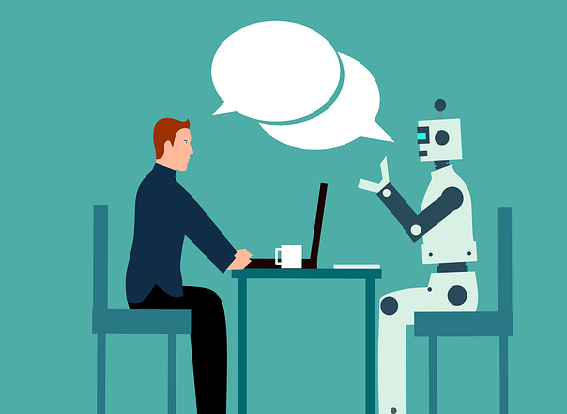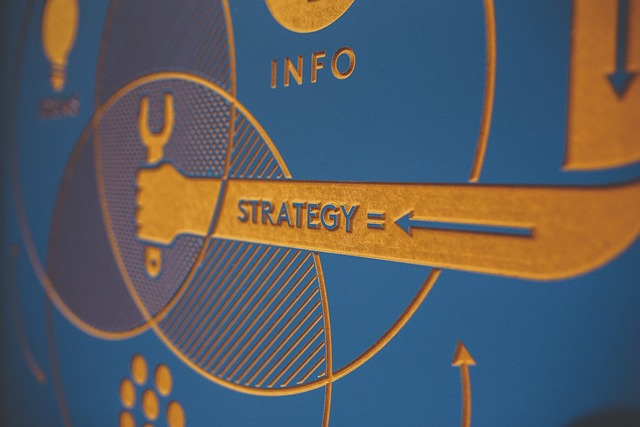Artificial Intelligence (AI) is transforming industries, and HR is no exception. HR professionals today are increasingly leveraging AI to streamline recruiting and talent management processes. From identifying the right candidates to improving employee retention, AI-driven solutions offer efficiency, accuracy, and fairness. By integrating AI in HR, businesses can gain a competitive edge, reducing hiring biases and making more data-driven decisions. This blog post explores how AI is revolutionizing the recruitment process and enhancing talent management practices across industries.
AI in Talent Acquisition and Candidate Screening
AI-powered recruitment tools are reshaping the hiring process. Traditional recruitment involves manually sifting through resumes, which is time-consuming and prone to bias. AI, however, can analyze thousands of resumes in minutes, identifying the most suitable candidates based on predefined criteria.
For instance, AI-driven talent acquisition tools use machine learning algorithms to screen candidates by analyzing factors such as skills, experience, and even cultural fit. By doing so, AI ensures that only the best-matched candidates reach the interview stage, saving HR teams valuable time.
Moreover, AI can remove unconscious bias from the hiring process by focusing on data rather than human judgment. This is particularly important in promoting diversity and inclusivity in the workplace. Companies can rely on AI to make fairer, more equitable hiring decisions, ensuring that candidates are evaluated based solely on their qualifications.
As businesses grow, the need for efficient recruitment becomes paramount. AI helps streamline this process, ensuring that HR teams can focus on higher-level strategic tasks, such as employee engagement and retention, rather than manual screening.
AI in HR Automation for Talent Management
AI in HR doesn’t stop at recruitment; it plays a crucial role in talent management as well. AI-powered talent management systems provide insights that help HR professionals manage their workforce more effectively. By analyzing employee data, AI can identify high performers, predict potential turnover, and even suggest personalized development plans for employees.
For example, AI can recommend training programs for employees based on their career goals and current skill sets. This not only improves employee satisfaction but also ensures that the company’s workforce continues to develop relevant skills, increasing overall productivity.
AI-driven tools also help with performance management. Traditional performance reviews can be subjective, but AI can provide objective insights based on data such as project completion rates, team collaboration, and customer feedback. This allows HR teams to make more informed decisions when it comes to promotions, bonuses, and other rewards.
By automating many of these processes, AI allows HR departments to focus on fostering a positive workplace culture and addressing more complex human issues rather than getting bogged down in administrative tasks.
Predictive Analytics in Recruitment and Workforce Planning
Predictive analytics in recruitment is another area where AI is making a significant impact. By analyzing historical hiring data and current market trends, AI can predict the future hiring needs of a company. This allows HR teams to be proactive rather than reactive when it comes to recruiting, ensuring that they always have the right talent in place to meet business demands.
Additionally, AI can help with workforce planning by predicting turnover rates and identifying potential skill gaps within the organization. This enables HR professionals to create strategies to retain key employees and fill skill shortages before they become critical issues.
AI-driven predictive analytics also assist in talent sourcing. By analyzing data from various sources, such as social media, job boards, and internal databases, AI can identify potential candidates who may not be actively looking for a job but have the skills that a company needs. This gives businesses a competitive advantage by allowing them to tap into a broader talent pool.
By utilizing AI for predictive analytics, HR teams can create a more strategic approach to hiring and workforce management, ultimately leading to better long-term outcomes for the company.
AI for Employee Retention and Workforce Engagement
Employee retention is a major challenge for HR departments, and AI can help address this issue by identifying the factors that contribute to employee turnover. By analyzing data such as employee satisfaction surveys, performance metrics, and exit interview data, AI can highlight trends and provide insights into why employees may be leaving.
This information allows HR teams to implement strategies to improve employee retention, such as offering more targeted benefits, creating career development opportunities, and improving workplace culture. Additionally, AI can help with employee engagement by monitoring employee sentiment in real-time and suggesting actions to improve morale.
For instance, AI-driven tools can analyze communication patterns within teams and provide recommendations on how to improve collaboration and productivity. By fostering a positive work environment, businesses can increase employee satisfaction and reduce turnover, which ultimately leads to a more stable and productive workforce.
AI also plays a role in workforce planning by identifying potential internal candidates for promotion or leadership roles. This helps companies retain top talent by offering them opportunities for growth and development within the organization, reducing the need for external hiring.
AI for Reducing Hiring Bias
One of the most significant advantages of using AI in HR is its potential to reduce hiring bias. Traditional hiring processes are often subject to unconscious bias, where factors like gender, ethnicity, or even the candidate’s name can influence decisions. AI-driven recruitment tools focus purely on data, helping to eliminate these biases from the hiring process.
For example, AI can anonymize resumes by removing personal information that could lead to bias. This ensures that candidates are evaluated solely based on their qualifications and experience. Additionally, AI can assess candidates using objective criteria, such as their performance on assessments or interviews, rather than relying on subjective opinions.
By reducing bias, AI helps create a more diverse and inclusive workplace, which has been proven to lead to better decision-making and higher levels of innovation. Companies that use AI to reduce bias in their hiring processes are likely to see improvements in both the quality and diversity of their workforce.
Moreover, AI can continuously learn and improve its algorithms to ensure that it remains fair and unbiased over time. This is a significant step toward creating more equitable hiring practices across industries.
AI for Employee Experience and Workforce Planning
AI-driven tools are not only useful for recruitment but also for improving employee experience. By analyzing data on employee engagement, feedback, and performance, AI can provide personalized recommendations for improving the overall work environment. This can include suggesting new initiatives to enhance employee satisfaction, such as flexible work arrangements or wellness programs.
Additionally, AI can help with workforce planning by predicting future staffing needs based on business growth, market trends, and employee turnover rates. This enables HR teams to be more strategic in their planning and ensures that they have the right people in place to meet future challenges.
AI also assists in identifying internal talent for promotions or leadership roles. By analyzing employee performance and potential, AI can help HR teams create development plans that align with both the employee’s career goals and the company’s needs. This leads to a more engaged and motivated workforce, reducing turnover and improving overall productivity.
By integrating AI into talent management and workforce planning, HR departments can create a more dynamic and responsive approach to managing their employees, ultimately leading to a more successful and sustainable business.
Conclusion
AI is revolutionizing HR processes, from recruiting and talent acquisition to employee retention and workforce engagement. By leveraging AI-driven tools, HR professionals can make more informed decisions, reduce hiring bias, and create a more efficient and fair workplace. Whether it’s automating routine tasks, providing insights through predictive analytics, or improving the employee experience, AI offers a wide range of benefits that are reshaping the future of HR. As businesses continue to adopt AI, those that embrace its potential will be better equipped to attract, retain, and manage top talent in an increasingly competitive market.






